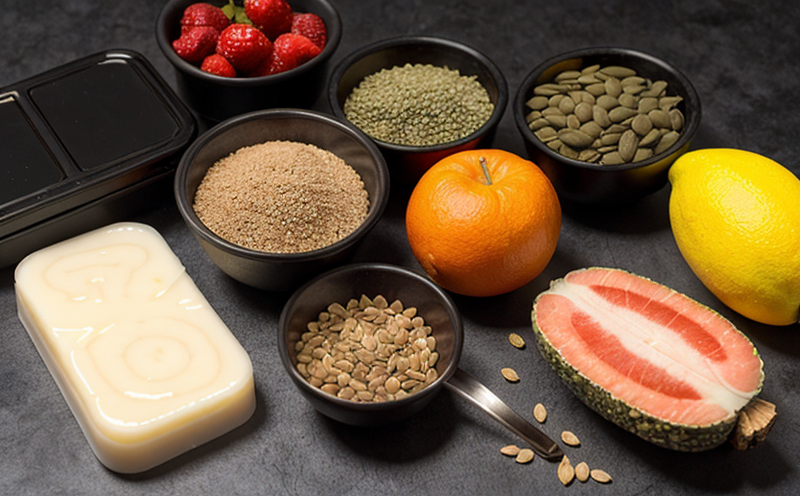ISO 31220 Determination of Carbohydrates in Bakery Products
The determination of carbohydrates is a critical aspect of nutritional composition testing, especially within the food and feed sector. ISO 31220 provides a standardized method for determining total sugars present in bakery products such as breads, pastries, cakes, and other similar items. This service ensures that manufacturers adhere to regulatory standards and consumer expectations regarding sugar content.
The process involves several steps including sample preparation where the baked goods are ground into fine powder. The use of analytical instrumentation like high-performance liquid chromatography (HPLC) is essential for accurate measurement. Chromatographic separation allows for precise identification and quantification of carbohydrates.
Understanding the carbohydrate content helps in meeting dietary requirements, especially for individuals with diabetes or those following low-carb diets. It also plays a role in product labeling compliance by providing reliable data on macronutrient profiles.
The importance cannot be overstated; accurate carbohydrate determination supports not only regulatory compliance but also enhances consumer trust and satisfaction. By adhering to this standard, food processors can ensure their products meet quality benchmarks set forth internationally.
Applied Standards
- ISO 31220:2018 - Determination of total sugars in bakery products
- ASTM D5764-19 - Standard Practice for Sampling and Preparation of Bakery Products
- EN ISO 15666-1:2013 - Analytical methods for the determination of carbohydrates in foodstuffs - Part 1: General principles
The application of these standards ensures consistency across different laboratories and helps maintain high levels of accuracy and reliability.
Scope and Methodology
| Step | Description |
|---|---|
| Sample Collection | Collect representative samples from various batches of bakery products. |
| Preparation | Grind the collected samples into a fine powder for analysis. |
| Solution Preparation | Dissolve the prepared sample in an aqueous solution containing appropriate reagents. |
| Separation and Detection | Utilize HPLC to separate components and detect carbohydrates quantitatively. |
Use Cases and Application Examples
- Determining the sugar content in breads for labeling purposes.
- Evaluating compliance with dietary guidelines for diabetic-friendly products.
- Ensuring consistency in product formulation across production batches.
| Bakery Product | Total Sugars (g/100g) |
|---|---|
| Whole Wheat Bread | 5.6 g/100g |
| Rye Bread | 3.2 g/100g |
| Cinnamon Rolls | 14.7 g/100g |





